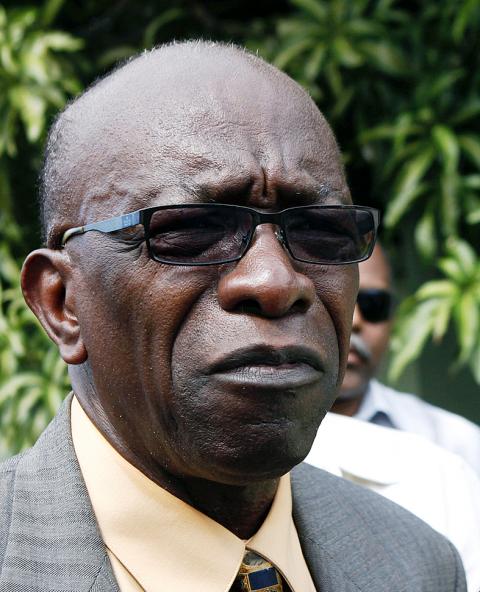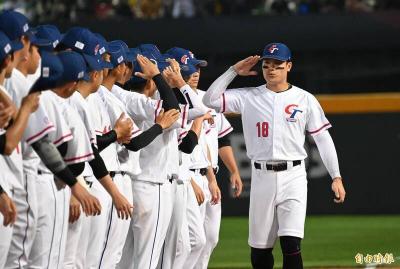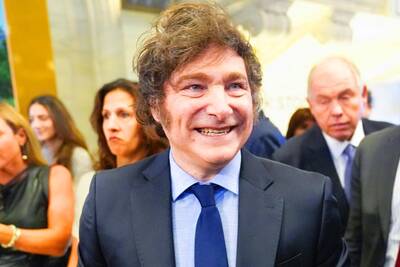Former FIFA vice president Jack Warner said he was sold the soccer World Cup television rights for Trinidad and Tobago for as little as US$1 in return for supporting FIFA president Sepp Blatter in elections.
Warner, who resigned from all his soccer positions in June after he was suspended by FIFA following allegations in a cash-for-votes scandal, issued a statement on Thursday revealing the details of the television deals.
A spokesperson for FIFA said soccer’s world governing body was “looking into” Warner’s statement and would make no further statement in the meantime.

Photo: Reuters
Warner said that he was awarded the rights for seven World Cups at a minimal fee.
For the 1998 tournament, Warner said FIFA sold them to him, through a Mexican company, for just US$1.
Warner said the money he made from selling the rights “was used primarily to assist in the development of football in Trinidad and Tobago.”
“This was just after Blatter had won the FIFA presidency following a most brutal campaign against Lennart Johansson, a campaign in which [Mohamed] bin Hammam and I played critical roles in support of Mr Blatter,” Warner said in the statement.
Warner has been heavily critical of the FIFA boss ever since he resigned midway through this year as president of CONCACAF, the regional confederation for North and Central America and the Caribbean.
Warner was accused of having organized a meeting where bin Hammam, the former Asian Football Confederation president from Qatar who was running against Blatter for the presidency, was alleged to have distributed US$40,000 in brown envelopes to Caribbean soccer officials.
Warner and bin Hammam have both denied the allegations against them with Warner promising to unleash a “tsunami” against Blatter.
In Thursday’s statement, he said he was sold the rights to more World Cups after helping Blatter get re-elected in 2002 and 2006.
“President Blatter sold me, not the CFU [Caribbean Football Union], the World Cup TV rights for 2002 and 2006, no doubt in appreciation of the work I did [with Bin Hammam] for his re-election. The sale of these rights was used to develop Caribbean football,” Warner said in his statement.
Warner, who is the Trinidad and Tobago Works and Infrastructure minister, said the rights for last year’s and 2014 World Cup finals were again sold to him, but “using the CFU as the vehicle.”
Warner said he was offered another deal this year “in exchange for my support [and by extension the support of the CFU and the CONCACAF] in the FIFA presidential election, FIFA again offered me the sale of the World Cup Rights for 2018 and 2022 as a ‘gift’ at a nominal fee.”
Warner said FIFA also agreed to grant two US$500,000 “Goal Projects,” “as a gift to the CONCACAF to do with as CONCACAF wished.”
Warner said FIFA had since withdrawn the television rights for the 2014 World Cup and revoked the offers for 2018 and 2022.
Blatter was re-elected for a fourth term on June 1 and vowed to introduce reforms in the wake of bribery and corruption allegations.

The qualifying round of the World Baseball Classic (WBC) is to be held at the Taipei Dome between Feb. 21 and 25, Major League Baseball (MLB) announced today. Taiwan’s group also includes Spain, Nicaragua and South Africa, with two of the four teams advancing onto the 2026 WBC. Taiwan, currently ranked second in the world in the World Baseball Softball Confederation rankings, are favorites to come out of the group, the MLB said in an article announcing the matchups. Last year, Taiwan finished in a five-way tie in their group with two wins and two losses, but finished last on tiebreakers after giving

North Korea’s FIFA Under-17 Women’s World Cup-winning team on Saturday received a heroes’ welcome back in the capital, Pyongyang, with hundreds of people on the streets to celebrate their success. They had defeated Spain on penalties after a 1-1 draw in the U17 World Cup final in the Dominican Republic on Nov. 3. It was the second global title in two months for secretive North Korea — largely closed off to the outside world; they also lifted the FIFA U20 Women’s World Cup in September. Officials and players’ families gathered at Pyongyang International Airport to wave flowers and North Korea flags as the

For King Faisal, a 20-year-old winger from Ghana, the invitation to move to Brazil to play soccer “was a dream.” “I believed when I came here, it would help me change the life of my family and many other people,” he said in Sao Paulo. For the past year and a half, he has been playing on the under-20s squad for Sao Paulo FC, one of South America’s most prominent clubs. He and a small number of other Africans are tearing across pitches in a country known as the biggest producer and exporter of soccer stars in the world, from Pele to Neymar. For

A debate over the soul of soccer is raging in FIFA World Cup holders Argentina, pitting defenders of the social role of the beautiful game against the government of libertarian Argentine President Javier Milei, who wants to turn clubs into for-profit companies. Argentina, which gave the world Diego Maradona and Lionel Messi, is home to some of the world’s most devoted soccer fans — a fact attributed by supporters like Gabriel Nicosia to the clubs’ community outreach. Nicosia is a lifelong supporter of San Lorenzo, a more than 100-year-old first division club based in the working-class Buenos Aires neighborhood of Boedo where